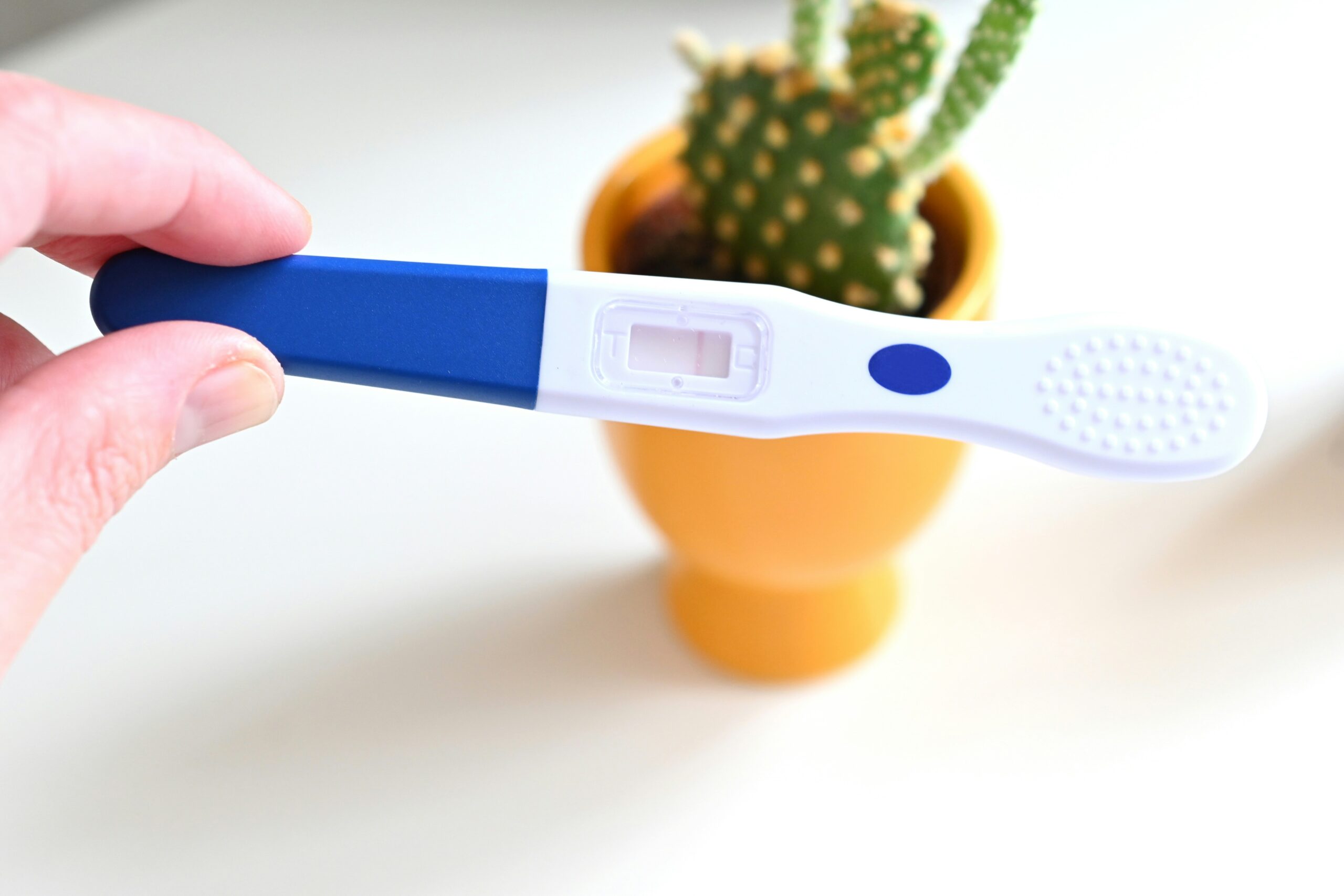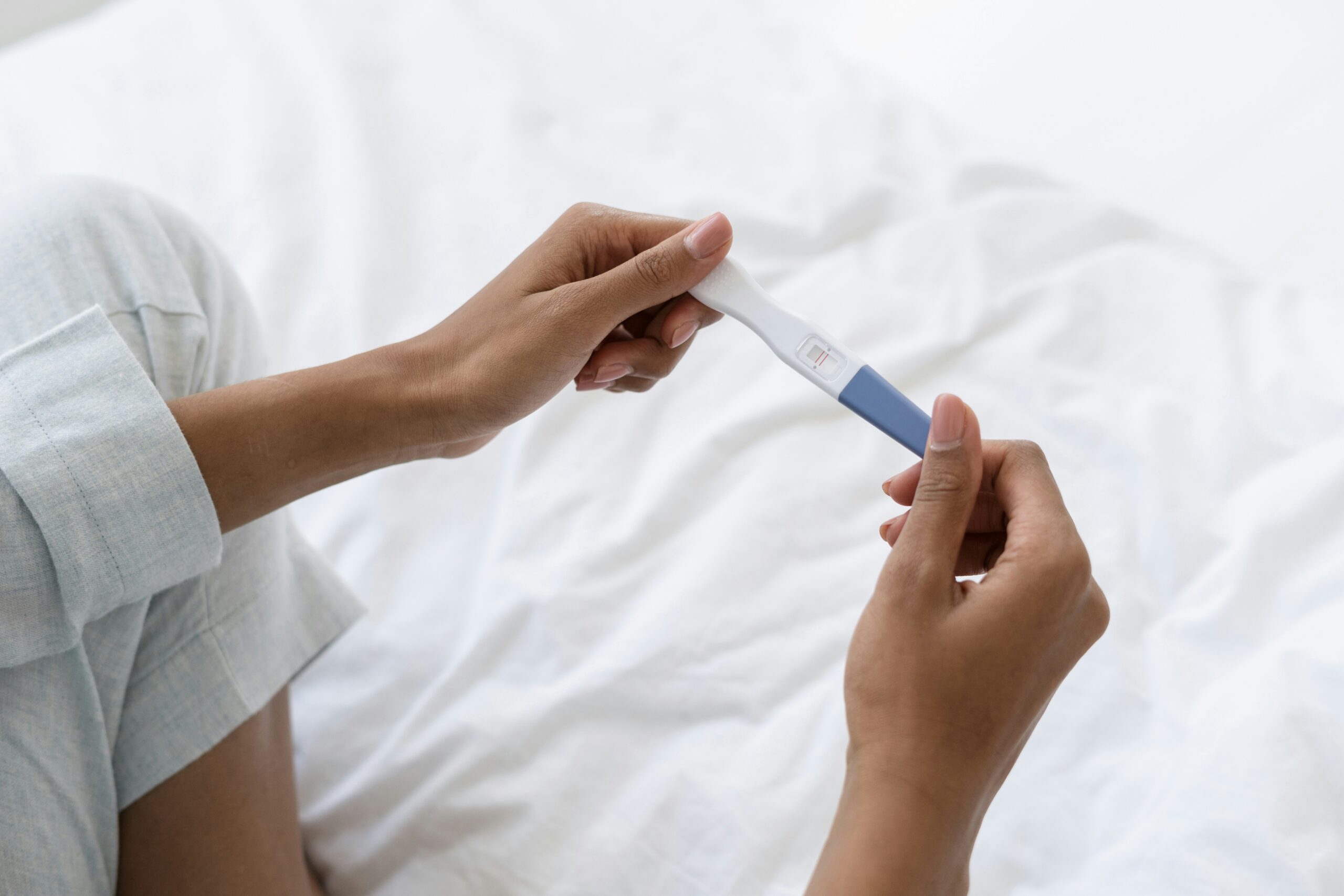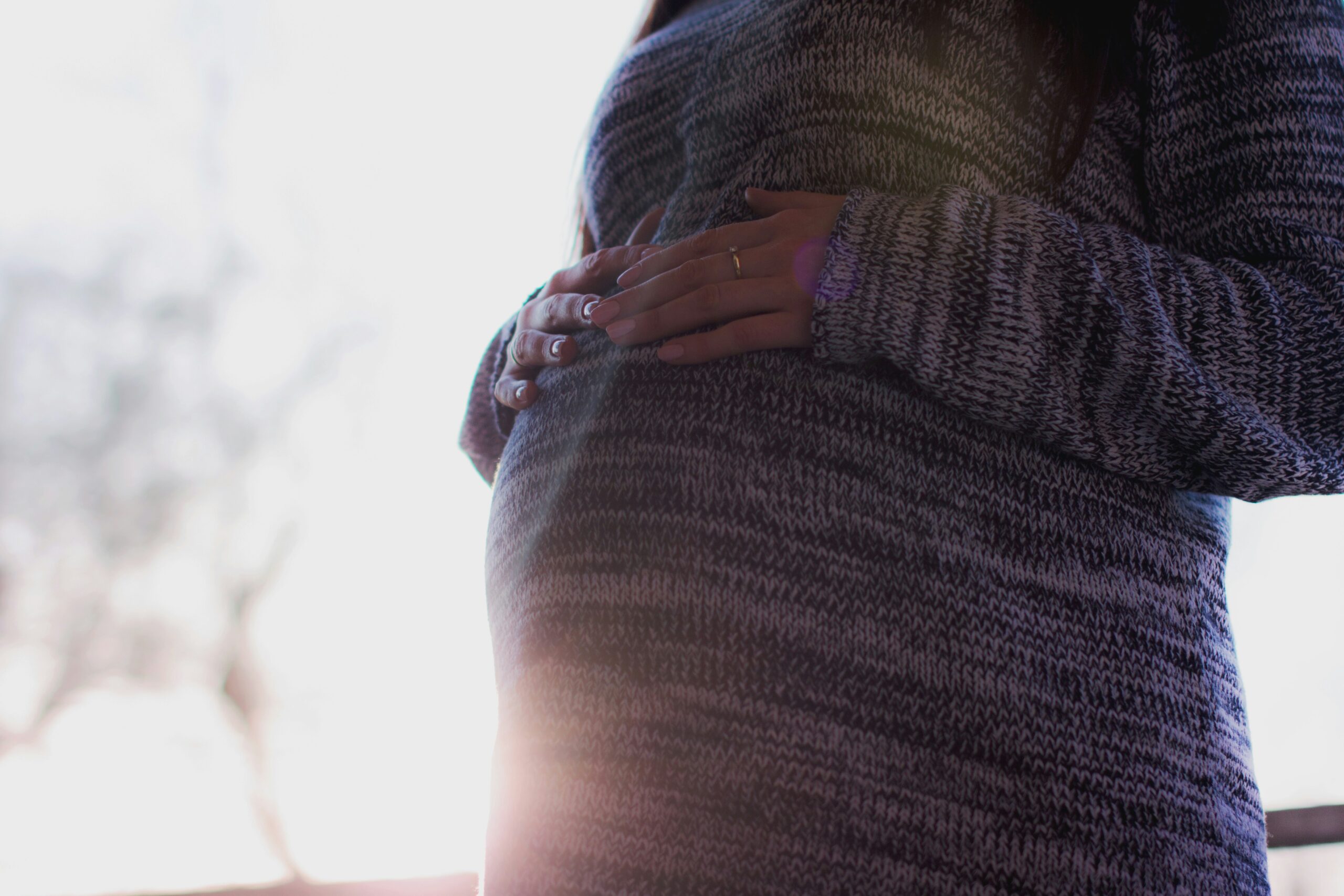Pride Month is more than a rainbow flag in a store window—it’s a chance to reflect on how queer families uniquely experience the world of fertility challenges. In my work as a queer therapist, I have supported LGBTQ+ adult individuals and couples as they navigate the complex world of infertility. Again and again, I’ve seen how grief threads itself through the family-building journey—especially when loss is part of the story. I’ve witnessed clients navigate the grief of trying to conceive for months without a clear answer as to why they’re not getting pregnant. I’ve also witnessed clients navigate miscarriage and other forms of pregnancy loss—and the devastation that comes with them.
The most important thing I’ve learned in my work is that queerness isn’t just an identity—it’s a gift. And that’s especially true for those experiencing the heaviness of fertility challenges. Queer people know their bodies. Queer people know grief. Queer people know resilience. And most importantly, queer people know how to carve out joy—even in the hardest moments.
Why Inclusive Care Isn’t Optional for LGBTQ+ Families
For many queer families, clinical care for infertility looks different than it does for their straight and cisgender counterparts. Their relationships are different; their bodies are different; and their paths to family building are different. And while no one wants to feel unwelcome at the doctor’s office, for queer families, it’s not just about feeling seen—it’s about getting the right care.
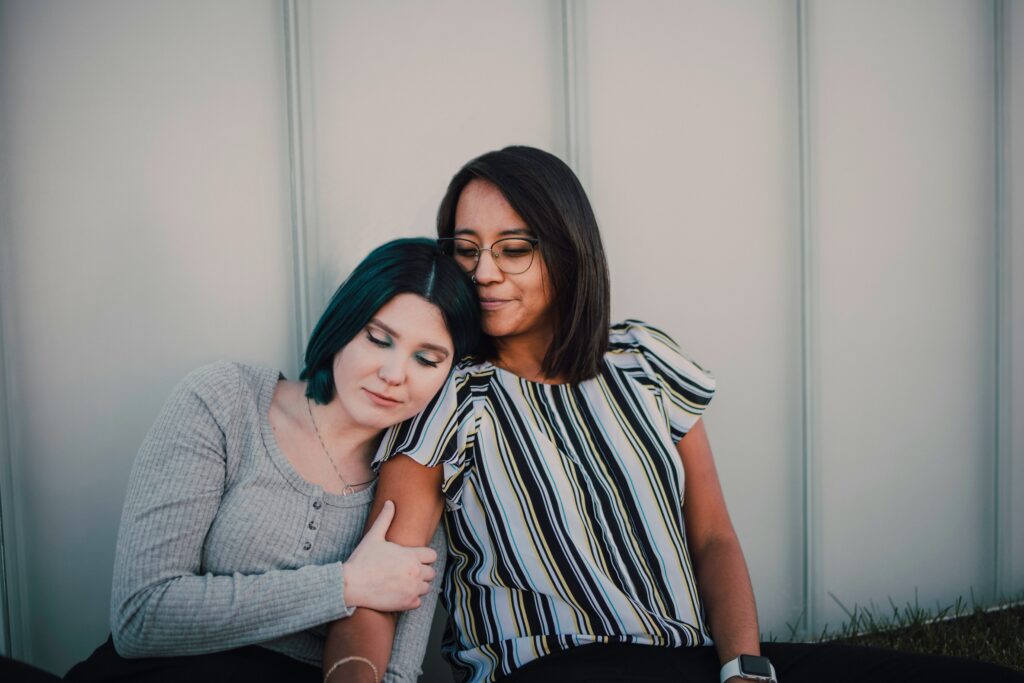
I’ve had clients share with me about some experiences of feeling well taken care of by their providers… and just as many who haven’t. The differences often come down to whether or not the providers are using inclusive and affirming language. Other times, it’s the logistics—like health insurance that doesn’t fully cover fertility care for queer families.
And even if it is just a matter of feeling welcome or unwelcome, LGBTQ+ people are at a higher risk for health disparities—often rooted in a lack of belonging. If a fertility clinic is using the wrong names and pronouns, or is calling someone a woman when they’re nonbinary, that misstep alone can be enough to keep queer people from seeking the care they need. This is especially true when miscarriage and pregnancy loss are at play. Getting follow-up care could mean feeling emotionally traumatized by your provider for your queerness, on top of the emotional trauma of the miscarriage itself.
Another aspect of fertility challenges I see in my work is the complexity of grief experienced by queer families. Sometimes, this looks like not having support from one’s family of origin. Other times this looks like someone’s feelings being minimized by others because they’re using third-party donors to conceive. Many queer families experience invalidation, discrimination, and even trauma because of the ignorance and bigotry that pervades our society, both culturally and institutionally. I see my clients navigate the grief of pregnancy loss or fertility challenges, on top of the grief of feeling disenfranchised in the process.
The Power of Chosen Family in Grief
As a mental health provider, I see first-hand how impactful it is for queer folks to have chosen family and strong, affirming support systems. For my clients, this looks like going to explicitly queer-affirming midwives, having queer fertility support groups, and, of course, having close friends and chosen family who love and affirm them in their queerness.
For example, when someone’s family denies their right to feel grief after pregnancy loss because they aren’t genetically connected to the fetus, having chosen family show up and affirm their grief is life-saving. Instead of feeling isolated and alone in their experience because of their identity, they might end up feeling loved and cared for because of their identity. Having people and systems show up and say “Your feelings are real and your experience matters” could be the difference between a healthy grief experience and a traumatic grief experience.
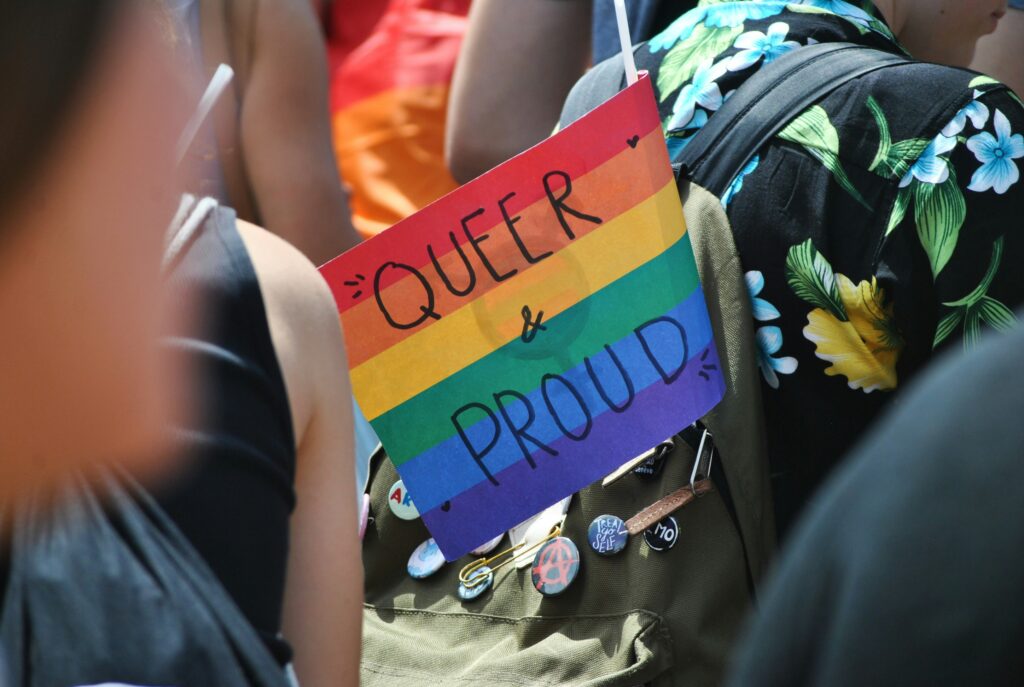
What This Work Has Taught Me
For LGBTQ+ people, we know that joy isn’t just a feeling—it’s life-saving. Existing in a world that doesn’t accept you is a radical act. Surviving in a world that doesn’t accept you is a radical act. And experiencing love, joy, and solidarity in this same hostile world is a radical act. This is just as true for queer families navigating fertility challenges and loss, as it is for all queer folks.
No one knows what’s on the other side of this journey—there are no guarantees. -. But what I have found to be especially true for queer families is this: moments of connection—to yourself, your body, your partner, your chosen family, the earth, music, art and life’s small pleasures—make the grief survivable. They make it worth it. They make thriving possible.
I’ve seen my clients lean on queer community events like the recent home//made queer family photography event in Oakland, CA. I’ve watched them find strength in queer-affirming providers, like Partera Midwifery in Santa Cruz, CA. I’ve also watched clients be held by their chosen family as they’ve navigated months and months of failed conception attempts and traumatic losses. The joy of having a loved one bring you a home-cooked meal or get on the phone while you process your grief is profound.
Even in the trauma and heartache, I watch with awe as my queer clients root themselves in resilience, in joy, and in community. It’s not just survival—it’s resistance. And it’s beautiful.
Working with queer clients—especially around fertility—is a gift I never take for granted.. I support individuals and couples in all stages of life, and particularly love holding space for the fertility challenges that can come up along the way.
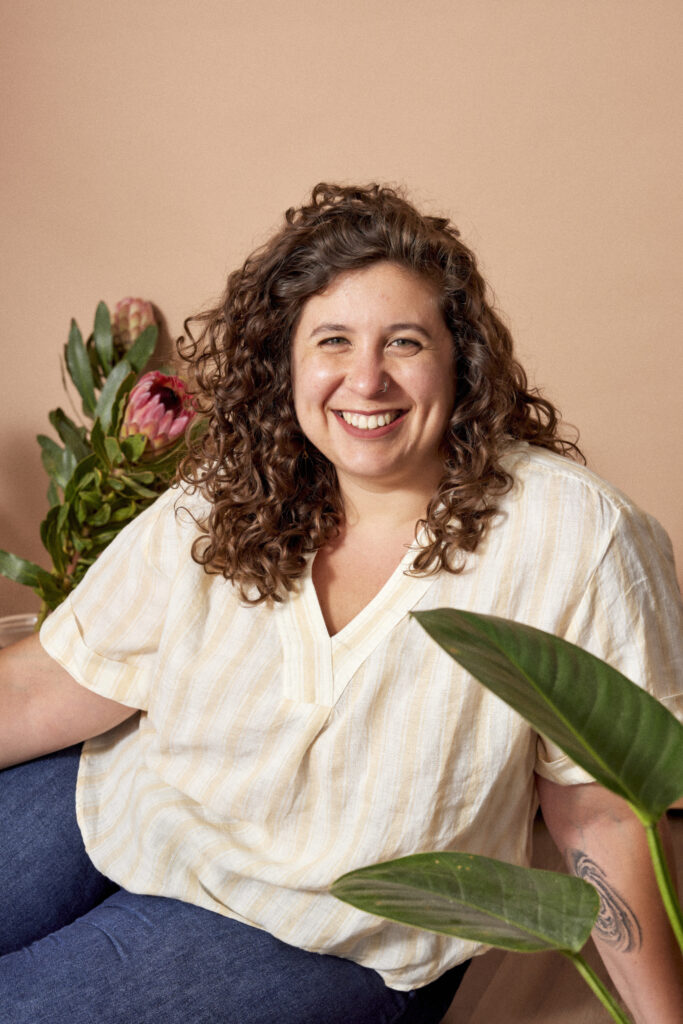
As a queer person myself, I feel nourished by the intimacy and preciousness that comes with holding space for someone as they navigate loss, joy, and everything in between. Therapy is a powerful space for healing, growth, and change. For queer families going through fertility challenges, I’ve seen my clients find strength and healing within themselves. The journey can be messy, confusing, and full of uncertainty, but it comes with a sense of groundedness and hope, too.
Author
-
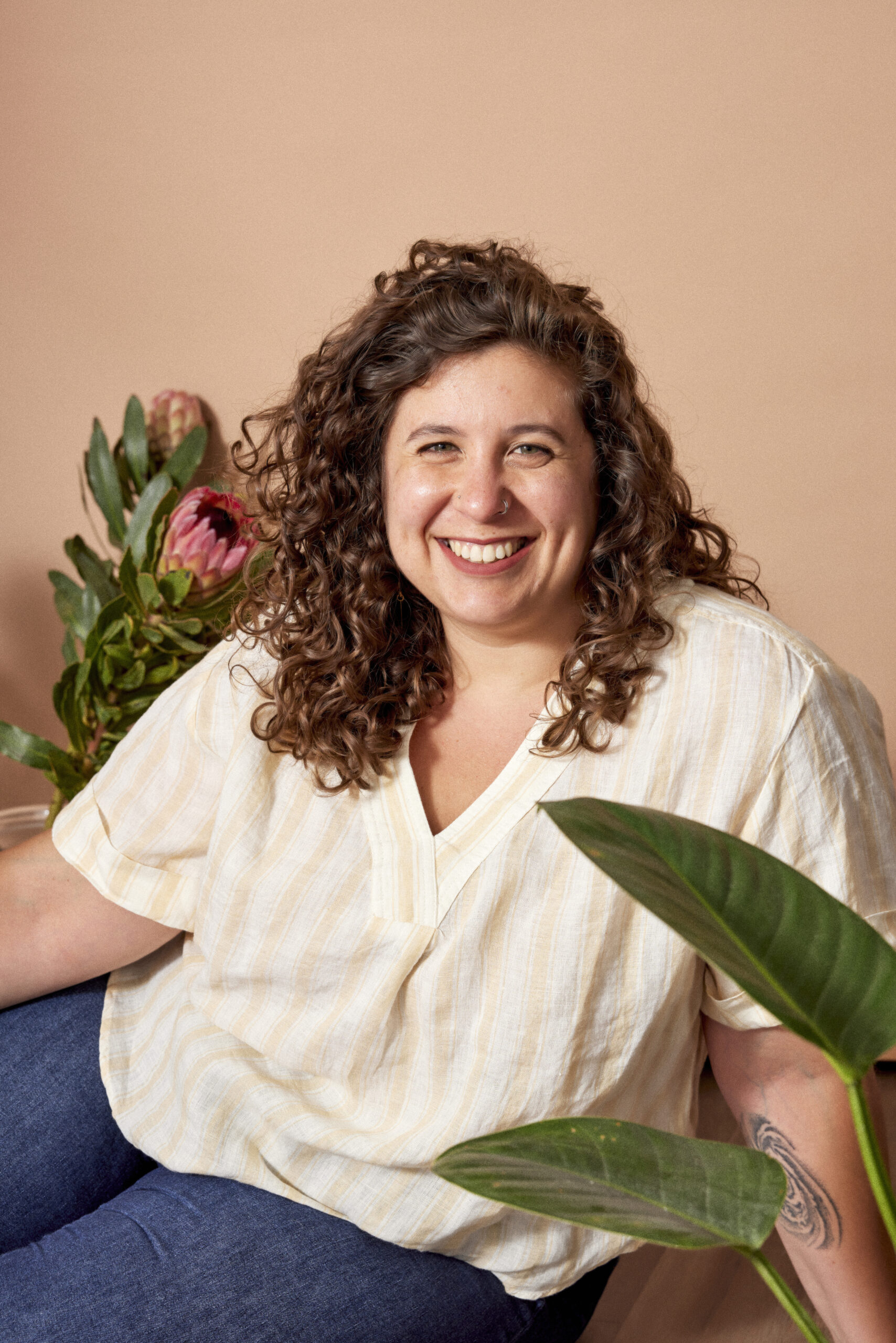
Laura Grossman is a therapist who proudly identifies as queer. Her passion lies in helping individuals and couples navigate life's ups and downs, especially those who identify as LGBTQ+, but she works with all sorts of people looking to bring more happiness and confidence into their lives and relationships. She has a particular fondness for supporting queer and trans adults as they navigate the fertility and parenting journeys. When she's not busy with her therapy practice, Laura is often wrangling her two dogs and exploring beautiful food and nature spots around her town.
View all posts


